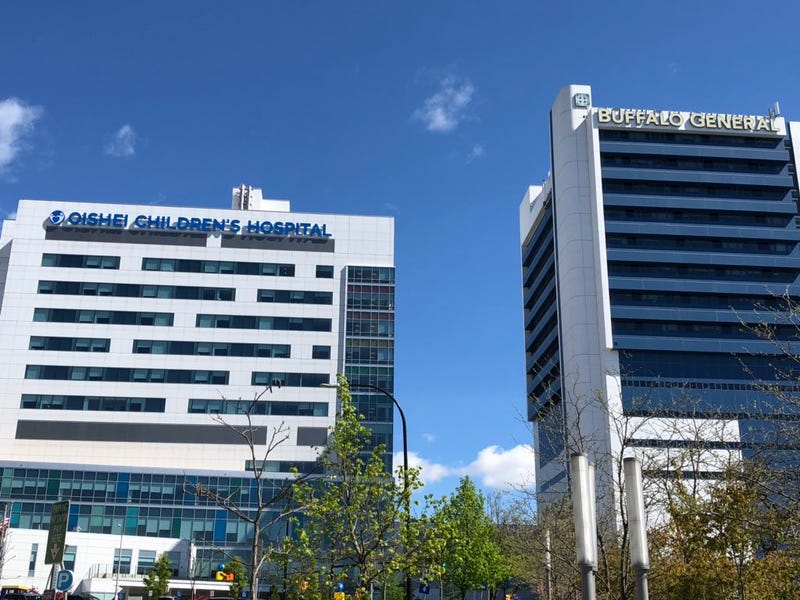
Buffalo, N.Y. (WBEN) - The time is nearly here.
The Total Solar Eclipse is coming to Western New York and like our local municipalities, our area's hospital services have been preparing for the last several months to ensure that in the event of an emergency plans, protocols, equipment and adequate staff is at the ready.
"We've been holding internal planning committee meetings since October of 2023," notes Ryan Hejmanowski, the Corporate Emergency Manager for Kaleida Health.
"We've discussed a variety of topics at these meetings, whether it's mental health, potential eye injuries from people looking at the eclipse and medical supply, inventory like food, linens and pharmaceuticals. We've also talked about staffing. The the influx of visitors to the area really presents a unique challenge for us. We're used to planning for things like winter storms, but this is definitely a different experience for planning, but we're also using a lot of the same steps that we would plan for a winter storm."
Traffic congestion seems the a predominant concern for our healthcare systems. They want to ensure that there is safe passage for first responders if someone needs to be transported to the hospital, which is why communication and coordination with local law enforcement and county emergency services teams are an essential facet to the plans of the healthcare systems.
"We've been meeting with local first responders, primarily Niagara Falls Police Department on the traffic issue, and also with John Schultz from the Niagara County Office of Emergency Management," said James Suitor, Niagara Falls Memorial Medical Center's Director of Public Safety and Emergency Management.
"We've been coordinating this for probably the last six months, because we're anticipating traffic management issues, which would either be people leaving from the hospital or ambulances and personal vehicles coming to the hospital for the needs of the community."
Specifically, Suitor mentions a few blocks will be closed for emergency vehicles can have an expedient route for transport.
"We've coordinated with the police department to maintain a sterilized area between Pine Avenue and Ferry on 10th Street. We've sanitized an area where traffic is going to be prohibited, except for emergencies."
Catholic Health COO Jim Garvey mentions another transportation option that can be utilized if need be.
"We're confident in local law enforcement and county, that they're doing everything they can to keep major arteries open for us, because that's that's the primary concern we have," Garvey said. "We also recognize that there's air transportation that with MercyFlight, and other resources that are available."
In addition to communication and coordination facets of the plan and procedures of our healthcare systems, some hospitals are doing drills to train for any scenario that may arise.
"We actually just recently did a mass casualty drill with all of Western New York, about three weeks ago as a regional exercise with all the hospitals and they did reference solar eclipses. As a region, we've all prepared for the possible [scenarios] that may [arise] during this event," noted Suitor.
In addition, hospitals are increasing staff in the emergency rooms.
"We have what we call our emergency response team or individuals that, prior to events, have identified themselves as those willing to come in and to be able to support staffing as needed. So we have that resource if we still need that resource going into Monday," Garvey adds.
And although a fair amount of healthcare providers and patients may not be available to step outside to witness the event, some hospitals like Niagara Falls Memorial are allowing some staff and patients to step out to view it, if able.
"The hospital has coordinated with our foundation, so that the employees and patients can get an opportunity to go out and have a viewing," added Suitor.
